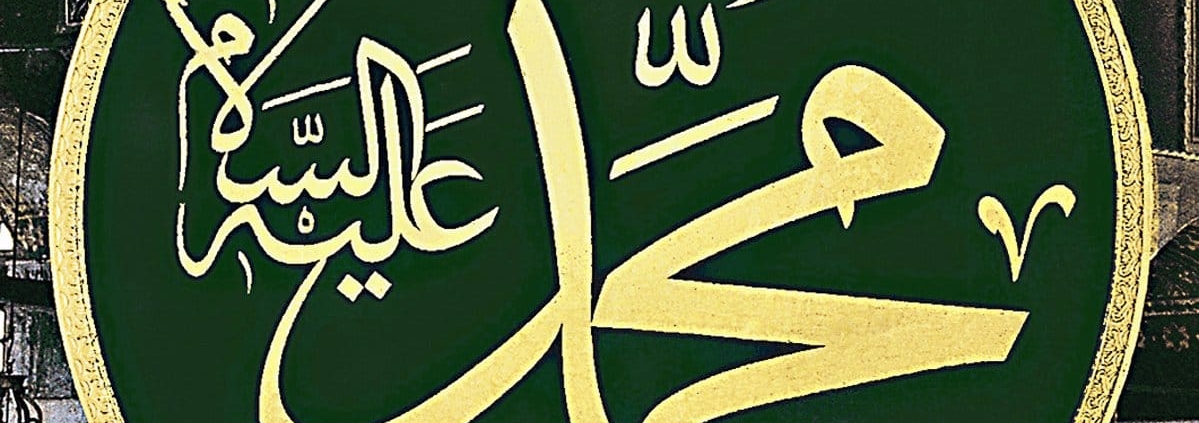Is It Permissible to Read the Mawlid and Ask for the Prophet’s Intercession?
Question: I wanted to know about the relevance of mawlid (birthday) of our beloved Rasoolullah (saw). What about the usage of words in manqoos mawlid such as “anta munjeena ghada” -“you are my saviour tomorrow” and “shafa`atuhu hab lana” – “bless us with the intercession”.
Answer: Assalamu alaykum brother,
Thank you for your question. Manqoos mawlid originates in Kerala, India. It was composed of the Muslim Scholar from Malabar Sheikh Maqdoom Zainuddin bin `Ali bin Ahmad (1467-1522). At that time, there were frequent fears of plague, smallpox, and many natural disasters at the coast of Malabar. So, the people approached Sheikh Maqdoom who was the top spiritual leader of Muslims in Malabar, and expressed their worries.
Shaikh Maqdoom thought deeply about the matter and decided to compose a mawlid, following in the footsteps of former Muslim scholars. Some parts of this mawlid were extracted from other mawlids (and shortened), while some themes were added by himself to cater to the problems of the Malabar region at that time. Sheikh Maqdoom then asked everyone to read this mawlid in their homes and in all the masjids.
This mawlid is also known as ‘Al-Mawlid ul Manqoos’ (The word “Manqus” in Arabic means ‘The Shortened’). Since that time, this mawlid has been regularly recited by Muslims in Kerala and neighboring places with great devotion, especially in the month of Rabee’ul Awwal, and also during special events and for special needs. In different parts of the world, it has been recited with great enthusiasm by Kerala Muslim communities as well as by many other groups.
The following is an excerpt taken from one of the links below. Please read all the excellent articles below to answer your questions in full.
“Everyone who feels longing and love [for the Prophet] ought to manifest delight and gladness (al-surur wa-al-bishara) on that night and the following morning and treat his children and wife to whatever he can afford in order to receive its blessings. He should entertain them and teach them that he did so simply out of love for that night, delight in it, and concern for its merit. He should explain to them that it is the noblest of nights in the eyes of God because on it the Messenger of God was born, and mention to them the description of the Messenger of God, his beauty and comeliness, his perfection, virtues and moral qualities, his speech and eloquence, his generosity and magnanimity, his character and clemency, his forgiveness and tolerance, his miracles and signs, everything that endears him to their hearts and exalts him. He should also teach them poems praising and extolling him. I and every other person who loves the Prophet consider this to be judicious and well-considered (min husn al-ra’y wa al-nazar), because teaching something [to a person] in his youth is like carving in stone – especially since youths are enamored of wonders, and [the Prophet’s] miracles are among the most wondrous things.”
(Tadhkirat al-Muhibbin, trans. M. Katz)
As for the two statements that you mention, the Prophet, may Allah bless him and grant him peace will be granted intercession on the Day of Judgment and will aid in removing many believers already in the Hell Fire. We pray that Allah grants us all his intercession.
See the links below for a full description.
The Intercession of the Prophet on the Day of Judgment
The Pedagogical Power of the Mawlid, Pt I
The Pedagogical Power of the Mawlid, Pt II
On The Permissibility of Mawlid, With Conditions, by Shaykh Salek Bin Siddina
Wassalam
[Ustadha] Shazia Ahmad
Checked and Approved by Shaykh Faraz Rabbani
Ustadha Shazia Ahmad lived in Damascus, Syria for two years where she studied aqidah, fiqh, tajweed, tafseer and Arabic. She then attended the University of Texas at Austin, where she completed her Masters in Arabic. Afterwards, she moved to Amman, Jordan where she studied fiqh, Arabic and other sciences. She recently moved back to Mississauga, Canada, where she lives with her family.
